Have you ever thought about what food can do for your mood? Beyond how they taste, some “mood foods” can actually influence how you feel from the inside out.
“Foods are a natural source of substances that have important effects on the nervous system,” says Ellen Albertson, PhD, RDN, NBC-HWC, a psychologist and a registered dietitian nutritionist based in Burlington, Vermont. “Certain foods, generally those rich in amino acids, are used to create chemicals in the brain called neurotransmitters (serotonin, dopamine, endorphins, glutamate, GABA, and noradrenaline) that impact mood.”
Some research has suggested that eating whole foods, based on a modified Mediterranean diet — including fruits, vegetables, whole grains, nuts, fish, egg, some meat, and extra virgin olive oil — may be beneficial to your mood.
Conversely, while a cupcake or potato chips might feel like the right food for your mood at this moment, they may actually be linked to a decrease in mood.
“While a healthy diet can help to keep you balanced,” explains Albertson, too many processed foods and refined carbs “can cause blood sugar fluctuations that lead to mood swings, a bad mood, low energy, and irritability,” along with a potential link to depression.
Here are eight mood foods to add to your next grocery haul.
1. Dark Chocolate
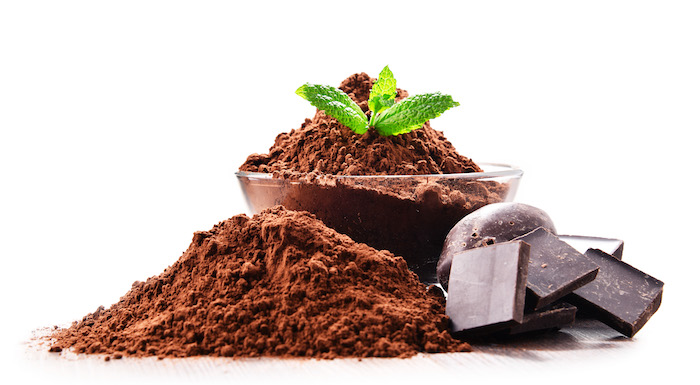
Yes, your favorite food made the list! The polyphenols in chocolate (500 mg per day) have been shown to have a beneficial link to promoting “calmness and contentedness,” according to research published in the Journal of Psychopharmacology.
Chocolate may also help get you in the mood by helping you connect with your partner, says Brocha Soloff, BS, RD, CDN, founder of iHeart Health. “It contains phenylethylamine, which is a feel-good endorphin often released in the brain when people fall in love,” she says.
2. Salmon
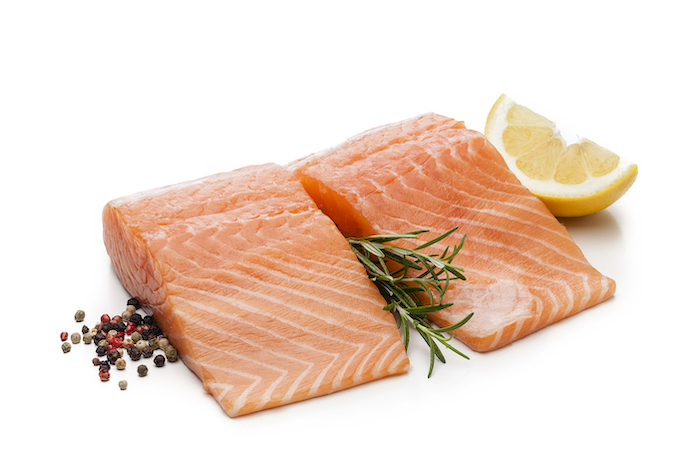
In addition to helping with heart health, “adequate amounts of omega-3 fatty acids can also boost mood,” says Albertson. A research review published in Translational Psychiatry found that taking omega-3s can improve depressive symptoms. One of the tastiest ways to add more of this nutrient to your diet is by eating fatty fish like salmon.
Aim for at least eight ounces a week, according to the 2020–2025 Dietary Guidelines recommendations.
3. Blueberries
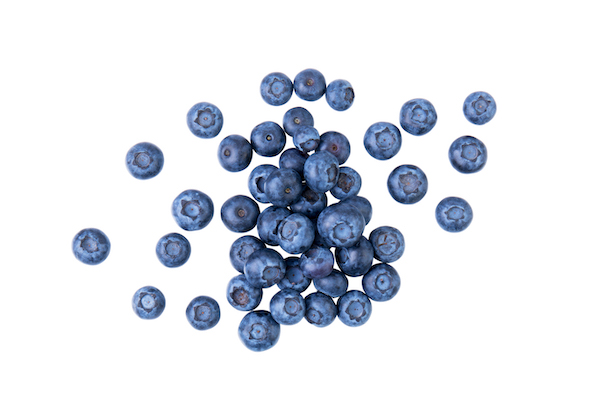
A study demonstrated a correlation between drinking a beverage containing 30 grams (about one ounce) of freeze-dried blueberries and a positive mood. More research is needed, but this is definitely an exciting study that further supports the benefits of consistently eating blueberries, which even contain antioxidant-like properties.
Include blueberries — along with other flavonoid-rich berries like blackberries and raspberries — in your diet as part of the recommended 1½ to 2 cups of fruit you consume daily.
4. Eggs
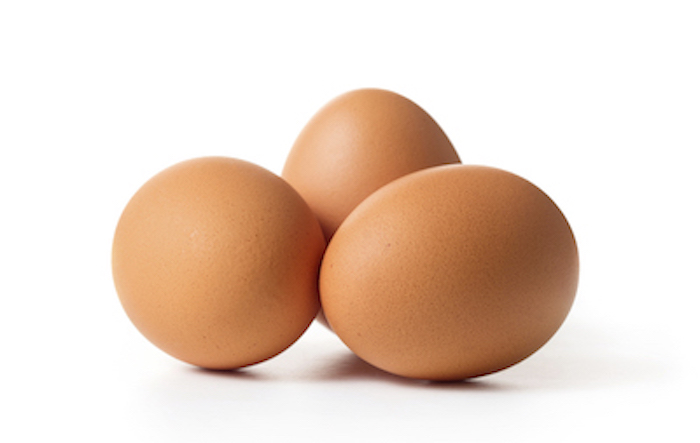
Here’s some egg-citing news: Eggs are “high in vitamin D and tryptophan, which creates serotonin,” says Albertson. Vitamin D and tryptophan are believed to have beneficial effects on mood. The study looking into tryptophan also examined the gut-brain axis, so try pairing your eggs with a side of kimchi!
Other food sources of vitamin D include fatty fish like salmon and fortified dairy, while tryptophan, an amino acid, is found in protein foods like chicken, egg whites, fish, milk, and turkey.
5. Dark Leafy Greens
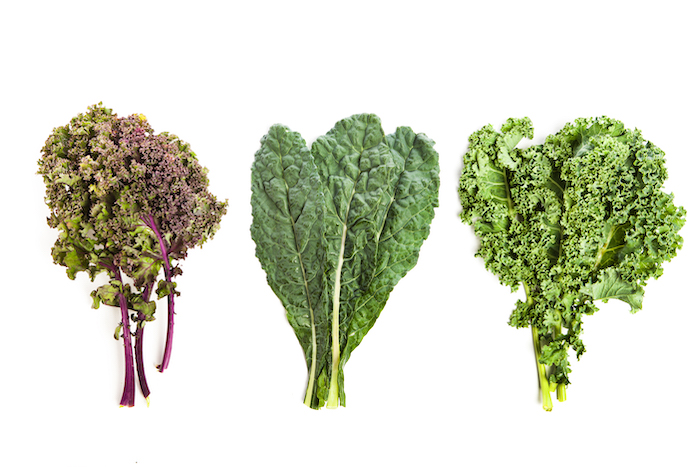
Need another reason to eat more greens? Dark leafy greens like spinach and kale contain magnesium, which your body needs “to facilitate the hormone balance, enzyme activity, and neurotransmitter function that regulate your mood and overall health,” says Soloff.
They are also a source of folate — and research suggests that there may be a link to those with depressive moods and lower levels of folate, so be sure to include dark leafy greens in your list of go-to salad ingredients.
6. Fermented Foods
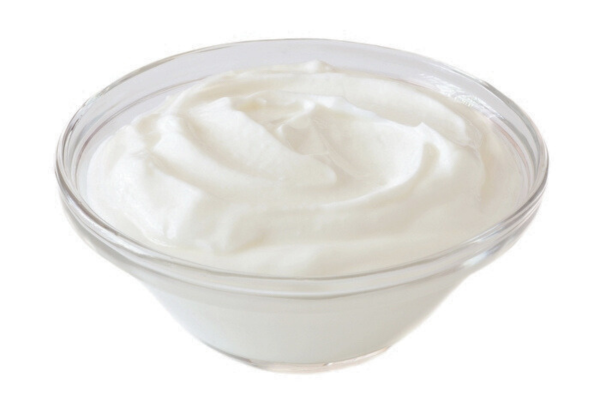
You might already be familiar with how probiotics and fermented foods are believed to have potential health benefits to your gut. But, since there is research suggesting a strong link between your gut and your brain, eating fermented foods like yogurt, lacto-fermented pickles, and sauerkraut may also help your mood.
7. Citrus Fruit
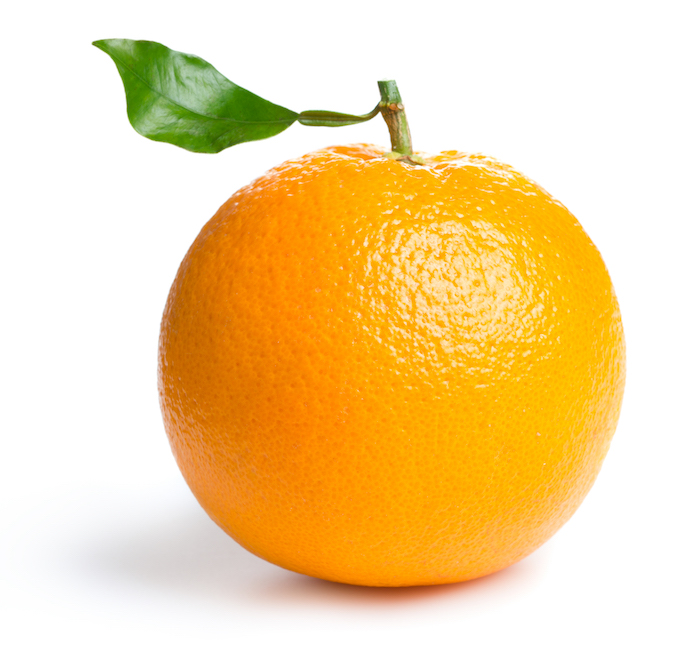
“Vitamin C is essential to your body’s ability to make neurotransmitters, including dopamine, noradrenaline, and serotonin,” explains Soloff. “These neurotransmitters provide mood stability.”
Citrus fruits like lemons, limes, grapefruits, and oranges are well-known sources of vitamin C, but foods like broccoli, strawberries, bell peppers, and even baked potatoes also contain this essential vitamin.
8. Whole Grains
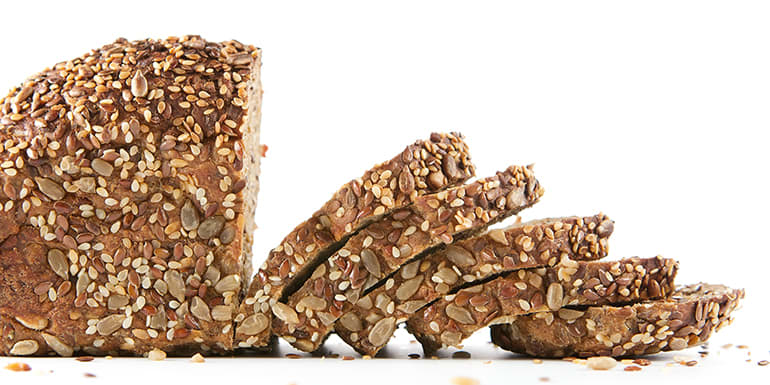
Like dark leafy greens, whole grains are a source of magnesium, says Soloff, but the mood-boosting benefits don’t stop there. Since they contain more fiber than their processed counterparts, whole grains are complex carbs, which are believed to help stabilize blood sugar levels — thus warding off “hanger.”
Choose whole grains over processed ones when selecting your carbs each day.
